Outdoor Recreation Offices Overview and Update 9-19-18
The following are four articles, including California’s veto of their Office and a signed accord related to the growing Outdoor Recreation Offices in the states.
The OREC movement gains momentum (July)

From left to right: Luis Benitez, director of the Colorado Outdoor Recreation Industry Office; Colorado Gov. John Hickenlooper; Tom Dempsey, president of SylvanSport; North Carolina Gov. Roy Cooper; and David Knight, director of North Carolina Office of Outdoor Recreation Industry.
Seyl Park/SylvanSport
Last week in Asheville, North Carolina, a roomful of delegates from around the country (and a few call-in attendees) took the next step in the Confluence process—a multi-state initiative to develop a national platform for the outdoor recreation industry.
It was a ceremonial gathering, with high goals and equally lofty language. It was also, at times, a ground-level tactical conversation, naturally a bit noisy and crowded. And, of course, it was also an outdoor industry event, treating attendees to local North Carolina specialties including music, beer, hiking, and river rafting.
But most of all, the event was a dedicated working meeting, after which attendees expressed appreciation for the process, thankfulness for the group’s commitment, and their own high goals for the outcome—the Confluence Accords, which are anticipated to be unveiled during the upcoming Outdoor Retailer Summer Market show.
“It’s hard not to recognize and appreciate all the dedicated individuals from around the country who have donated personal and work hours to the cause,” said Tom Adams, Director of the Utah Office of Outdoor Recreation. “Everyone in the room recognizes we are making history. This enormous group stayed laser focused for over six months in order to get this right.”
While last week’s event was hosted by North Carolina, the formal Confluence working process dates back to the fall of 2017 when states with “up and running” outdoor recreation programs began discussing the idea of finding and refining their common ground.
The conversation grew into reality after Colorado Gov. John Hickenlooper and Colorado Outdoor Recreation Industry Office Director Luis Benitez conceptualized and launched the first in-person gathering of state offices of Outdoor Recreation ahead of last January’s Outdoor Retailer show. Known as the Americas Outdoor Recreation Industry Confluence, the first-of-its-kind gathering drew delegations from Montana, North Carolina, Oregon, Utah, Vermont, Washington, and Wyoming to a meeting in Denver. Each participating delegation was headed by a state director of outdoor recreation, and each was required to have the support and endorsement of their respective Governor. In addition to government representatives, each delegation was also requested to also include representatives from their business, non-profit and cultural/tribal communities.
The eight states at the original Confluence centered their efforts on the development of an outdoor recreation industry platform—an expression of top line goals and strategies in four main sectors including economic development, conservation and stewardship, education and workforce training, and public health and wellness.
The politics of playing outside: Why we need more outdoor recreation offices
After the January event, the Confluence process continued throughout the spring as working groups formed to finalize those strategic statements. Through multiple rounds of discussion, crafting and re-crafting, working groups strived to hone in on elements of a final platform that could be as relevant to populations in Washington and Utah as they would be in North Carolina and Vermont.
“The Confluence Accords are further evidence of the Outdoor Industry maturing on a national scale,” said Hal Ellms, president of Pinnacle Outdoor Group, and member of the Vermont Confluence Delegation. “They’re going to provide another tool that we can use to advocate, individually, for the things we believe in such as the importance of public lands, pristine waters within those lands, and clean air above.”

As of Jul 2018, seven states have government offices and four other states have task forces or advisory councils.
Infographic by Kristin Hostetter and Jackie McCaffrey
Progress in Asheville
At the Asheville Confluence gathering last week, each of the working groups presented their completed statements, discussed their thought process, and incorporated final suggestions from the group on hand—which had expanded from the original eight delegations to include additional observers from Kansas, Maryland, California, and Michigan.
“Back in 2016, Jon Snyder from Washington, Luis Benitez from Colorado, and I met every trade show,” Adams said. “For two years we watched the sparks igniting around the country and we knew it wouldn’t be long before our trio grew. Since then, we have seen more than 15 states either create an office or a task force, the majority of whom have been part of the Confluence.”
Adams continued, “The rapid expansion of these offices alone gives reason for the industry to take note. Each of these offices are designed to support, collaborate, and drive the outdoor economy in their respective states. It simply won’t be successful in states that don’t have support from their outdoor industry members. It truly does take a village.”
For states already moving ahead on state-level outdoor recreation policy work, the Confluence Accords are anticipated to be a healthy and welcome justification for their efforts, giving them a new source of energy and reinforcement for their ongoing efforts.
For new and curious states considering the creation of an outdoor recreation initiative, the Confluence Accords are expected to provide a robust head start by delivering a set of strategic anchors that can inform, accelerate, and strengthen their work.
“By discussing an important framework with my colleagues and delegate representatives from other states, I gleaned an extensive amount of information about the current state of the outdoor recreation industry and where we will take it into the future,” said Domenic Bravo, Wyoming State Parks and Outdoor Recreation Office administrator. “This is valuable as it provides a ‘core’ set of principles we can all work from. It also provides a great guide to what Offices of Outdoor Recreation can accomplish in their respective states. These accords are flexible enough for states to adapt and tier their own strategic and implementation plans from.”
Looking ahead
While the official goal of the Confluence is to develop a national outdoor recreation industry platform, one unofficial side benefit of the process has been the creation of new working relationships between the various state delegations. Individuals who used to be separated by thousands of miles—despite working in essentially the same field and facing many of the same challenges—are now in regular and open communication.

